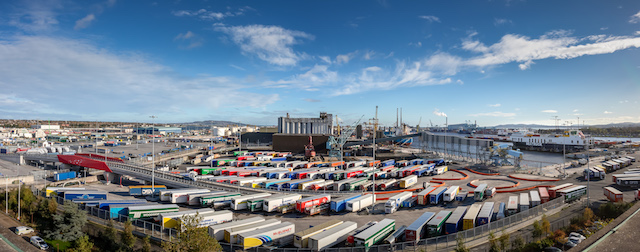The changes brought about by Brexit on the movement of freight in and out of Ireland remain significant and enduring, according to the Irish Road Haulage Association.
 The Irish Road Haulage Association (IRHA) has appeared before before the Oireachtas Joint Committee on European Affairs to discuss the impact of Brexit on trade and connectivity between Ireland, the UK and Continental Europe.
The Irish Road Haulage Association (IRHA) has appeared before before the Oireachtas Joint Committee on European Affairs to discuss the impact of Brexit on trade and connectivity between Ireland, the UK and Continental Europe.
Eugene Drennan, President of the Irish Road Haulage Association said: ”As licensed hauliers we are at the fore of dealing with the impacts of Brexit. We are the people who have to take the longer routes to Continental markets. We have to queue for the checks and inspections at ports and deal with the added cost and expense that Brexit has brought for us and our customers. To put this into perspective please consider that delays of up to four days have been experienced by hauliers and drivers because of Brexit.”
He added: ”This is due to the many checks imposed by the different agencies, who do not have an integrated efficient approval system. We have the possibility of being delayed with each and all of these agencies. And then this delay is multiplied by two for the UK side as well if a haulier is travelling to or through the UK. And all of these impacts are coming at a time of unprecedented challenge for our members with a mix of driver shortages, hugely inflated operating costs, extremely stiff competition and a regulatory regime which seems to target the compliant rather than the non-compliant.”
” A strong, competitive, dynamic, and versatile indigenous national road haulage fleet is imperative for Ireland. As an island State, Ireland requires a reliable national haulage fleet to keep the wheels of commerce moving. The disruption inflicted by both the pandemic and Brexit have emphasised just how important a function Irish Road Haulage Association members play in the efficient and timely delivery of goods throughout Ireland and with our major trading partners. Any interference in the effectiveness of our haulage sector will lead to shortages in the availability of basic goods, damage to the interests of trade and industry and significant interruption in our international mercantile trade.”
To read the entire presentation click on the link:



